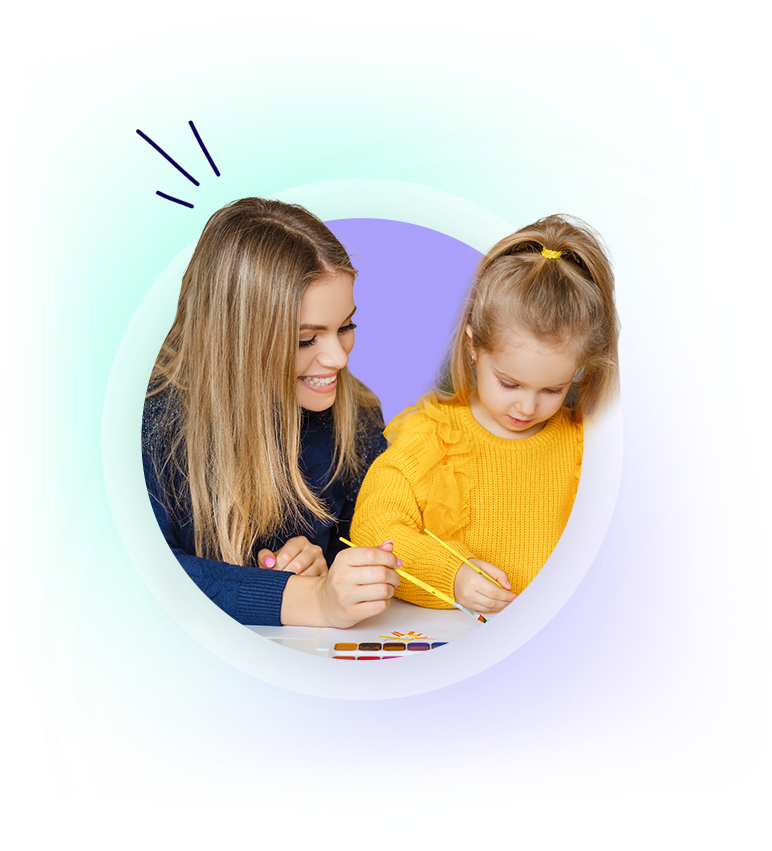

Why study Teaching in Australia?
Graduate diploma in Early Childhood Education is an excellent entry point for individuals driven by the innate desire to teach and profess knowledge and help mould the lives and learning experiences of children. Insights from The Australian Teacher Workforce Data (ATWD) forum shows clearly the increased demand of educators for young children in Australia and as the Australian demography expands in the coming years, this demand for early childhood educators is expected to increase exponentially. According to OECD Teaching and Learning International Survey (TALIS) 2018 , early childhood educators across the world but more specifically Australia also report a very high job satisfaction derived from their work thus making a career in this domain lucrative, respectable and extremely rewarding.
Why study a diploma in Early Childhood Education?
Diplomas in Early Childhood Education at either undergraduate or postgraduate levels are perfect for people who are already working in early childhood education and care, and want to progress their career as an educator or centre director.
The demand for diploma-trained early childhood staff has risen strongly over the past decade, and the number of higher-level vacancies is expected to continue to increase. According to the Australian Government's Job Outlook service, there will be around 10,000 child care centre managers required in Australia over the next five years. Thus a Diploma in Early Childhood Education will give you the skills and practical knowledge to teach children aged from birth to 5 years and design, implement early childhood programs, by understanding the emotional, physical, cognitive and social needs of young children.
Diploma in early childhood education and care will also craft the opportunity to explore early childhood education curriculum theories and pedagogies, child development, health and wellbeing, diversity and inclusion, professional studies as well as teaching and learning in discipline areas of literacy, mathematics, science and the arts. By experiencing learning across a range of early childhood settings, you will graduate equipped with the confidence and aptitude to meet the significant growth of the Australian early childhood education sector.
Bachelors Diploma in Early Childhood Education and Care: Why go for it?
Ideally suited for candidates who are at the crossroads of entering the professional field of early childhood education or for individuals who have been practising teachers in the same but want to formalise and enhance their learning outcome to explore deeper career opportunities in the early education spaces.
A bachelors in early childhood education equips you to become an in-demand early-childhood teacher, equipped with effective skills and practical experience.
The subject area of the course focuses on education and care of the target group of children from birth to five years empowering you to form an in-depth understanding of how early-childhood and kindergarten teaching can include children and families as contributors to the learning process. You'll graduate with expertise built on a strong sense of social justice, learnt through childcare and kindergarten-teaching experience and critical perspectives on early-childhood theory.
When you study early childhood education, you will gain insight into the early years by studying these fascinating areas:
- Child development
- Teaching practice that includes Aboriginal perspectives
- Education and curriculum studies focused on relationships and meaning
- Advocacy and activism in early-childhood settings
- History and Philosophy of early childhood
- Ethical early-childhood professional practice.
Bachelors in Early Childhood Education and Care: Career opportunities
Childcare job openings are expecting massive growth (ACECQA) in Australia. The structure of all diplomas bachelors in early education and children inherently give a candidate the essential experience of working in childcare and teaching in a kindergartens as part of coursework and thus preparing you for the real world environments.
Typically, studentes upon completion of the Bachelors diploma in this field find work in kindergartens and childcare centres, in jobs such as:
- Kindergarten teacher
- Early childhood teacher
- Kindergarten Curriculum Designer
Bachelors in Early Childhood Education and Care: Course Overview
To qualify for the award of Bachelor of Early Childhood Education, students must complete a specific number of credit points as prescribed by your facilitating university in the duration of 3 years which is the length of the Course. In these 3 years, you will spend your time studying subjects like:-
|
YEAR I ONWARDS |
YEAR II ONWARDS |
YEAR III ONWARDS |
| Reconciling Australian Humanities Education |
Practice in Partnership 1 |
Thinking with Young Children: Language and Literacy |
| Personal and Professional Learning |
Practice in Partnership 2 |
Advocacy in Leadership and Management in Early Childhood Education |
| Human Development, Sustainability and Wellbeing |
History, Philosophy and Early Childhood Education |
Practice in Partnership 3 |
| Creativity and the Arts in Education |
Engaging with Place through Play |
Critical and Contemporary Issues in Early Childhood Education |
| Playing with Play |
Engaging with Place through Rethinking Childhoods and Development |
Equity, Social Justice and Diversity in Early Childhood Education |
| Professional Understandings of Quality frameworks in Early Childhood |
Materiality in Early Childhood: Visual and Creative Arts |
Thinking with Young Children: Science, Maths and Technology |
| Educational Programs and Practice |
Moving with Young Children |
Practice in Partnership 4 |
| Safe, Secure and Supportive Relationships and Environments |
Music, Movement and Dramatic Arts |
Graduate Diploma in Early Childhood Education and Care: Why go for it?
Graduate Diploma in Early Childhood Education and Care is an industry-relevant postgraduate qualification for students who have already completed a three-year bachelor degree and would like to increase their employment prospects with an early childhood qualification. The Master of Teaching (Early Childhood) is for those looking to become teachers in early childhood settings. It is also excellent training for those pursuing a career in children's services coordination, early childhood research, policy formation, quality regulation and assessment or positions involving early intervention for children with special needs.
Master of Teaching in Early Childhood Education is designed for applicants with an undergraduate degree in any discipline who want a rewarding career as a global educator and teacher and will provide you with the knowledge, skills and professional values to become an effective educator. Through engagement with contemporary ideas and practices, you will develop the professional knowledge and skills needed to foster the learning of students of various ages and diverse needs. As a result, you will become an effective educator, able to design learning experiences that ensure your future students have the right balance of challenge and support to progress in areas such as the arts and music, English, mathematics, physical education, health and wellbeing, science and humanities. You will engage with current education priorities and policies, and learn how to apply these in practice to develop a set of professional values and commitments that will position you as a research-informed future education leader
A Master of Teaching in Early Childhood Education will facilitate your abilities to provide children with a quality early childhood education experience that contributes to their education success in later years. If you are passionate about equipping young children with the skills to be engaged lifelong learners, then a career in early childhood education is for you. You will work closely with infants and young children to inspire and stimulate their learning and skill development. This specialisation will prepare you to teach infants and children from birth to five years of age in childcare, kindergartens and preschools. You will gain an understanding of learning at the heart of teaching by examining the learning process and the aspects that influence it, while building a repertoire of strategies to manage young children's learning. Drawing on contemporary theories and practices of early childhood education you will gain an appreciation of the positive impact and power teaching can have on influencing young children's learning and development. You will engage with current education policies and priorities, at the local and international level, and learn to apply these in practice. You will learn to develop the required skills to create sustainable partnerships across networks. You will examine the importance of literacy and numeracy in early childhood education as well as the importance of play in a young child's development. By gaining an understanding of how young children learn scientific and technological concepts in everyday contexts, you will be equipped to explore ways in which digital technologies can enhance learning.
Pursuing a masters degree that is solely focused on early childhood education. You can use this qualification as a pathway to further learning, including doctoral studies. The Master of Teaching (Early Childhood), more specifically is for those:
- seeking registration with the Australian Children’s Education and Care Quality Authority (ACECQA) to teach specialised early years learning and development
- pursuing a career in children’s services coordination, early childhood research, policy formation, quality regulation and assessment or positions involving early intervention for children with special needs.
Additionally, a graduate diploma in Early Childhood Education enables you to gain practical experience and as this master degree is generally been approved by the Australian Children's Education and Care QualityAuthority (ACECQA) and it furthers your chances of getting gainful employment upon completion of this degree.
Graduate Diploma in Early Childhood Education and Care: Career Opportunities
If you want to make a difference in the lives & educational journey of young children, have an interest in childhood development, and have the patience, warmth, integrity and communication skills needed when working with young children, a master degree in Early Childhood Education is exactly for you and will equip you to find work in some areas listed below.
- childcare educator: encourage the healthy intellectual and psychological growth of children aged from birth to four years of age
- kindergarten teacher: responsible for a child’s first education experience, this role often encompasses introducing basic skills, including letters, numbers, social science and behavioural skills
- preschool teacher: educate and care for children aged three to five years
- junior primary teacher: develop lesson plans in line with curriculum objectives and facilitate classroom learning for children aged five to eight.
The Master of Teaching (Early Childhood) is accredited by the Australian Children’s Education & Care Quality Authority (ACECQA). Graduates may apply for registration to work in Australian early childhood education and care settings. This program also benefits other career paths in government (policy reform), research and community roles including:
- children’s services coordination
- youth health and wellbeing assessment and evaluation
Graduates interested in pursuing a research pathway, can apply for the Master of Education (Research) which provides research training experience for potential entry to the PhD-Education.
Graduate Diploma in Early Childhood Education and Care: Course Overview
Masters in early childhood education or Master in Teaching with a specialisation in early childhood education is a 2 year graduate degree course that requires on average about 200 credits points for successful completion. In the 2 years of your Master diploma you will study subjects like:-

|
YEAR I |
YEAR II |
| Engaging And Assessing Learners |
Engaging And Assessing Learners (EC) 3 |
| First Nations In Education |
Social And Emotional Wellbeing |
| Language, Literacy & Play-Based Learning |
Early Childhood Multimodal Literacies |
| Children, Childhood And Families |
Professional Learning Capstone (EC) |
| Engaging And Assessing Learners (EC) 2 |
Leadership, Ethics And Advocacy (EC) |
| Becoming Numerate In The Early Years |
Inquiry And Project Learning |
| Diversity And Inclusion |
STEM Learning In The Early Years |
| The Arts, Play And Young Children |
|
Pathway to PR for Teaching degree in Australia
is one of the industries expecting high growth in the near future and occupations in this industry are featured in the MLTSSL




Courses
- Bachelor of Education (Early Childhood and Primary)
- Bachelor of Education (Secondary)
- Bachelor of Special Education
- Master of Teaching (Early Childhood)
- Master of Teaching(Secondary)
Bachelor of Education
This a 4-year undergraduate qualification that will prepare you to become a qualified teacher in Australia. You may choose to specialise in the following areas:
Early Childhood - Prep to Year 3
Primary - Prep to Year 6
Secondary - Year 7 to Year 12
Entry Requirements: Student will need to have at least a Year 12 qualification. English requirement may vary according to Universities and teaching areas. Additional non-academic and non-English requirements may be needed depending on the University.
Master of Teaching
This is a 2-year postgraduate qualification designed for those who do not have an Education bachelor degees. Upon completion of the course, you may be eligible to register as a teacher in Australia in your chosen area: Early Childhood, Primary or Secondary.
Entry Requirements: A recognised Bachelor’s degree (AQF Level 7) and IELTS score of 7.5 overall with 8.0 in Listening and Speaking and 7.0 in Reading and Writing OR its equivalent in other English tests. Additional non-academic and non-English requirements may be needed depending on thet University.
PR visa options for Social Work graduates
|
Occupation Name |
Featured Skills List |
Potential visa types (Subclass) |
|
Early childhood (pre-primary school teacher) |
MLTSSL |
|
|
Secondary School Teacher 241411 |
|
186 - Employer Nomination Scheme Visa |
Frequently asked questions
about Teaching in Australia
With a bachelors diploma in Early Childhood Education you will be able to secure entry level positions in early childhood learning spaces like Kindergartens and early years schools. Typically, studentes upon completion of the Bachelors diploma in Early childhood education find work in kindergartens and childcare centres, in jobs such as:
- Kindergarten teacher
- Early childhood teacher
- Kindergarten Curriculum Designer
Speak with our experts
To get in touch with our expert team, simply leave your details below and we’ll call you for a FREE consultation.

Speak with our experts
To get in touch with our expert team, simply leave your details below and we’ll call you for a FREE consultation.
Student Testimonials
I have been a client of AECC since 2010. From that time, they have been helping me with all visa and education-related matters. I am very happy with their professional advice and friendly behaviour. So, I would like to recommend all to visit them for your migration pathway."
"I have been very impressed with AECC services, the whole team is efficient and knowledgeable. Thank AECC for your great support and guidance through my Professional Year Program and 485 visa."
"I had a very great experience with AECC. They were very cooperative at each stage. With the good guidance of Roldan I was able to decide what's best for my future. AECC has the best consultants over Australia!"


